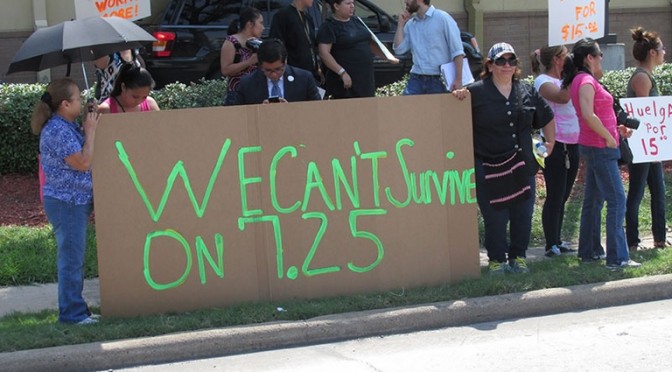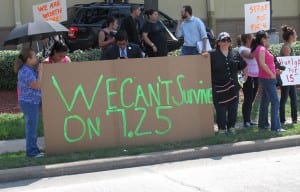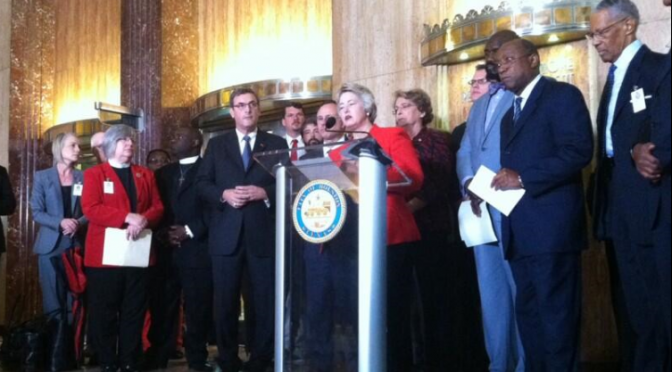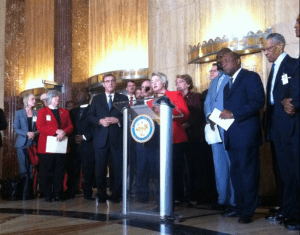A fierce battle has been raging around City Hall, as Houston tries to decide a major piece of the city’s transportation future. Upstart ride-share companies Uber and Lyft appeared in the Houston Market last February, and in a very short time have begun to challenge the city’s traditional taxicab services. As Texpatriate states, these ride-share groups have done much to strong arm their way into the market, even when it means openly breaking the law.
The Houston Chronicle reports that local taxi companies (i.e., the Greater Houston Transportation Company) have sued Uber and Lyft in Federal Court, alleging that the ridesharing apps (which moonlight as de facto taxi companies) are violating City ordinance by illegally accepting payments. As many will recall, Lyft and Uber recently entered the market in Houston, with the understanding that they could not accept any payment until everything is straightened out, legally speaking, down out City Hall. Lyft tried, at first, to say they did not actually charge for their services but were really “donation based,” but after Mayor Annise Parker made an admittedly epic comparison to streetwalkers, Lyft backed off from that sentiment.
The problem with this delicate arrangement is that Uber and Lyft have not lived up to their end of the bargain. Just last Saturday, Dug Begley at the Houston Chronicle delineated the plethora of citations these companies have been receiving in recent days for allegedly operating illegally. 26 citations just in recent days, as of Saturday. Accordingly, the argument shifts to the Taxi Co. who, for better or for worse, must abide by the regulations that are currently on the books. Whether or not you believe that there should be reform of the City’s taxi ordinances, everyone should be united against the overt lawbreaking on the part of Lyft and Uber.
Houston’s established cab companies have been quick to criticize Lyft and Uber at every turn because they want the services banned from Houston. And while I totally agree with Texpatriate that it’s wrong to break laws as Lyft and Uber have done thus far, the scrutiny being placed on them is only one side of the story.
Since I’ve heard and read so much about them, I decided to give Lyft a try. On one of my very first rides, I heard about an interesting situation.
Mia Marie is a Lyft driver that lives in Central Houston. When I met her, she wasn’t using Lyft’s signature pink mustache. Here’s what she had to say…
A few weeks ago, after I dropped off a passenger, a cab driver pulled out in front of me. He tried to stop me from leaving. I had to drive through the parking lot and wait on him to leave me alone but of course I drove off as fast as I could. Before that incident, another cab driver got out of his car and yelled obscenities at me. So I decided to stop wearing the mustache to avoid any future altercations. As one of the only females doing lyft in Houston, I feel safer without it.
While Mia really enjoys Lyft and has met a lot of fun and interesting people, she also worries about letting cab drivers know that she is associated with the service. Other Lyft drivers have cited similar harassment from cabbies all over Houston.
So many at City Hall are hurling critiques at these new companies, is it possible that they’ve forgotten the deplorable state of the status quo? In general, taxicabs break the law far more than I’ve seen from these new groups, even if they’re doing so on a smaller scale. Ted Oberg of Channel 13 news recently reported that the City has become lax in providing proper background checks for cabbies, and we may have more violent offenders behind the wheel than people realize. Whatever Uber or Lyft’s corporate leaders are doing, taxis have no reason to threaten their individual drivers.
As Houston moves forward to regulate the newest ones to enter the market, perhaps it’s time we take a step back, and make sure the city’s cabbies aren’t pulling a hit-and-run.
(photo credit: Texas Public Radio)













